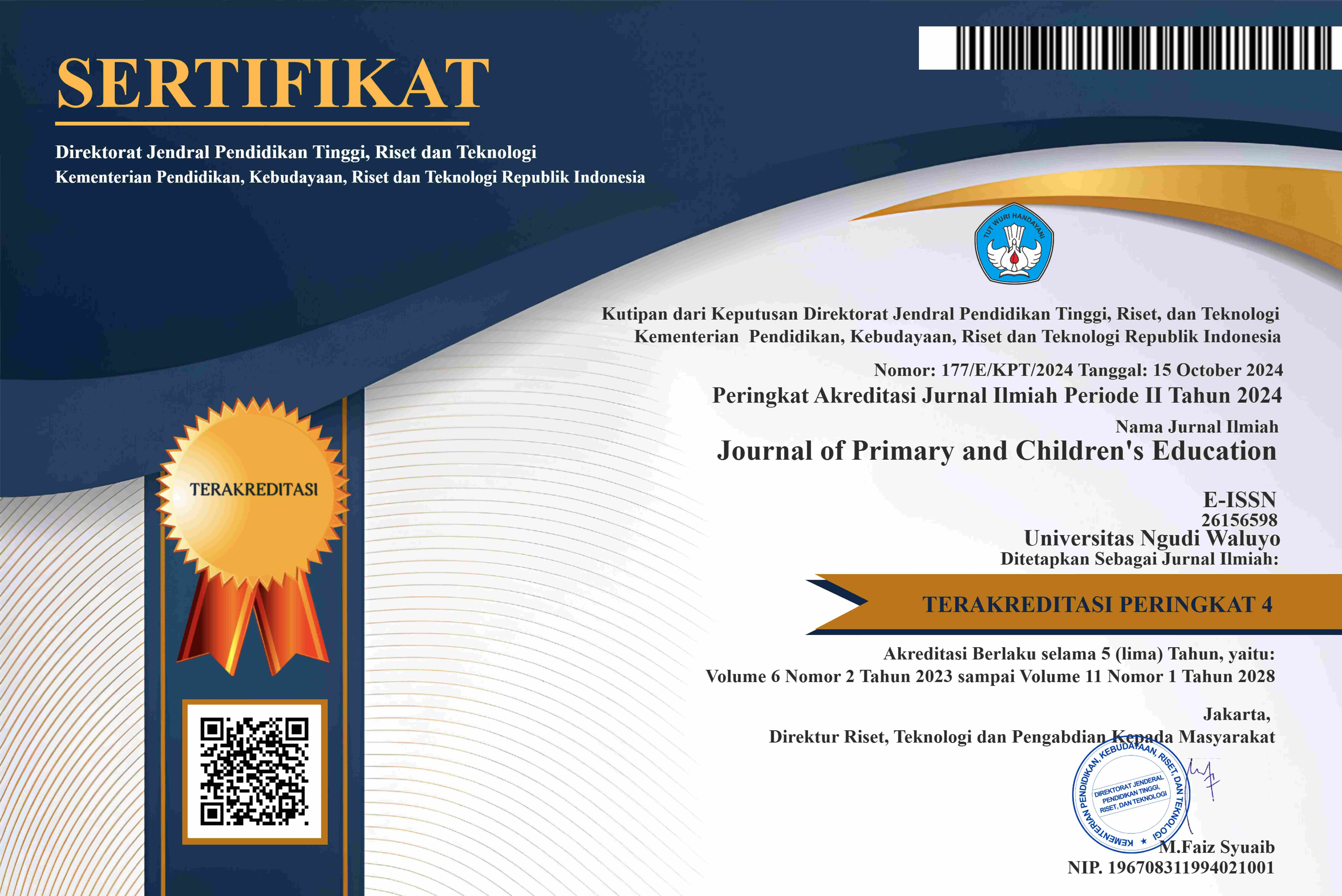PENINGKATAN KOMPETENSI PROFESIONAL GURU MELALUI PELATIHAN KAHOOT DI SDN 01 KULU KECAMATAN KARANGANYAR KABUPATEN PEKALONGAN TAHUN PELAJARAN 2020/2021
DOI:
https://doi.org/10.35473/jnctt.v5i1.1547Abstract
The purpose of this study was to determine the increase in the professional competence of SDN 01 Kulu teachers in using the Kahoot program in learning activities through training to make Kahoot. This research uses School Action Research (PTS), in school action research, principals can reflectively analyze, synthesize, what is being done in schools. This research was conducted in two cycles. Each cycle includes planning (plan), action (action), observation (observation), and reflection (reflection). Methods of collecting data with observation and documentation methods. There was an increase in teacher competence in making quizzes using Kahoot. Before giving the action, the teacher's ability was only able to reach 27% enough and 73% less. After being given action in the form of training activities to make online questions using googleform, teacher competence increased in the first cycle to 46% in the sufficient category and 54% of teachers in the good category, and in the second cycle to 73 who participated in the training in the good category, and 27% of teachers in the good category. sufficient category and overall the assessment aspects have been in good criteria. So it can be concluded that there is an increase in the professional competence of teachers through Kahoot training at SDN 01 Kulu, Karanganyar District, Pekalongan Regency.
References
Arikunto, S., Suhardjono., Supardi. 2014. Penelitian Tindakan Kelas. Jakarta: Bumi Aksara.
Awiria dkk. 2020. Pelatihan Mengembangkan Evaluasi Pembelajaran Inovatif Menggunakan Google Form, Kahoot Dan Quizziz Di Sekolah Dasar. Jurnal Penelitian dan Pengabdian Kepada Masyarakat UNSIQ, 9(1): 112-119
Bahar, Herwina dkk. 2020. Efektifitas Kahoot Bagi Guru Dalam Pembelajaran Di Sekolah Dasar. KACANEGARA Jurnal Pengabdian pada Masyarakat, 3(2): 155-162.
Fazriyah, Nurul dkk. 2020. Penggunaan Aplikasi Kahoot Pada Pembelajaran Media Dan Sumber Pembelajaran SD. Didaktik : Jurnal Ilmiah PGSD STKIP Suban, IV(1) : 139-147.
Haryati, M. 2007. Model dan Teknik Penilaian pada Tingkat Satuan Pendidikan.
Jakarta: Gaung Persada Press.
Inggriyan, Feby. 2020. Pendampingan Model Pembelajaran Inovatif menggunakan Kahoot sebagai Digital Game Based Learning di KKG Sekolah Dasar. Jurnal Publikasi Pendidikan, 10(1): 59-64.
Lutfi . 2020. Evaluasi Penggunaan Aplikasi Kahoot Pada Pembelajaran di Sekolah Dasar (SD) Pada Guru. International Journal of Community Service Learning. 4(3): 186-191
Muhibbin, S. 2010. Psikologi Pendidikan dengan pendekatan baru. Bandung: PT. Remaja Rosdakarya.
Muhson, A. 2010. Pengembangan Media Pembelajaran Berbasis Teknologi Informasi. Jurnal Pendidikan Akuntansi Indonesia, Vol. VIII. No. 2.
Muhson, A. M. 2010. Pengembangan Media Pembelajaran. Jurnal Pendidikan Akutansi Indonesia, Vol. VIII No.2, 1.
Mulyasa, E. 2009. Standar Kompetensi Guru dan Sertifikasi Guru. Bandung: PT Remaja Rosdakarya.
Munir. 2010. Kurikulum berbasis teknologi informasi. Bandung: Alfabeta.
Sagala, S. 2013. Kemampuan Profesional Guru dan Tenaga Kependidikan. Bandung: Alfabeta.
Rusyan, H.A., Tabrani. 2014. Membangun Guru Berkualitas. Jakarta: PT. Pustaka Dinamika.
Tomoredjo, M. R. (n.d.). Penguasaan ICT: Bekal Guru Profesional Menghadapi Era Global. Retrieved 2018
Triyanto, T. 2006. Tinjauan Yuridis Hak Sera Kewajibpan Pendidik Menurut UUGD. Jakarta: Prestasi Pustaka.
Program Pascasarjana Universitas Indonesia.
Published
How to Cite
Issue
Section
License
Copyright notice:
- Authors retain copyright and grant the journal right of first publication with the work simultaneously licensed under Creative Commons Attribution License that allows others to share the work with an acknowledgement of the work's authorship and initial publication in this journal.
- Authors are able to enter into separate, additional contractual arrangements for the non-exclusive distribution of the journal's published version of the work (e.g., post it to an institutional repository or publish it in a book), with an acknowledgement of its initial publication in this journal.
- Authors are permitted and encouraged to post their work online (e.g., in institutional repositories or on their website) prior to and during the submission process, as it can lead to productive exchanges, as well as earlier and greater citation of published work (The Effect of Open Access)







